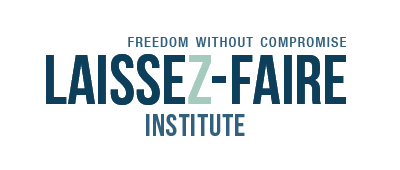“Libera Europa” (“Free Europe”) is an organization of people who do not believe that the perspective of a European political union – a superstate with Brussels as its capital – is either the inescapable destiny or the natural goal of our continent.
On the contrary, members of LE believe intimately that the European Union represents the betrayal of the Spirit of this continent, whose fortunes were always based, in all its proud history in its extraordinary institutional and cultural diversity.
With varied degrees during the evolution of the last 2000 years, the European model has always been polycentric, based on coexistence and competition between different normative systems. For centuries, Europe has been a “globalised” continent of small countries and city states; for centuries, artists, inventors, bankers and merchants have experienced the potential of an integrated cultural and economic area based on a decentralised political framework.
Only in more recent times has this model been called into question, at the point where the 20th century saw the struggle between those who held an ideological “unifying” vision for Europe, and those who wanted to preserve a Europe of democracies and diversities.
The threat of competing totalitarian systems, communism and national-socialism, both fruits of the same poisoned tree, has been apparently defeated, but in our age the same goals are being implemented through the European Union, which increasingly appears as yet another attempt of subjugating Europe under a single artificial government, with the fig leaf of token “representation” for the former nation states in order to maintain a semblance of fairness and plurality.
We consider this project extremely dangerous, an enterprise which, instead of contributing to closer and cordial relationships between independent nations, is much more likely to generate tension and animosity, as we are already witnessing as a consequence of the dynamics triggered by the ill-advised and worse-executed monetary union.
Citizens of southern European countries are becoming increasingly hostile towards Germany and the other northern countries, all based on the accusations thrown by myopic politicians that accuse them of imposing “austerity” on the south. At the same time, citizens of northern European countries are getting more and more restless seeing their money used to bail out Greece and other fiscally irresponsible Eurozone states. If we continue down this path, frictions may escalate to alarming levels. absolutely unthinkable between independent countries, like Canada and the United States, Australia and New Zealand or Sweden and Norway.
The European Union does not serve Italy’s interests. Our country is one of the main net contributors to the European budget. Contrary to what Germans and Northerners believe, Italians send more money to Brussels than they get back.
In our opinion, it is not just a matter of getting the balance right. Our goal is different. We are not asking for more money or for more protection for Italy in order to increase “fairness”. The real issue is the quality of this exchange.
The money we give to the EU comes from taxes extracted from the already struggling productive part of society. The money we receive comes through political intermediation and most often a prolonged series of shady bargains.
We drain resources from the Italian productive sector returning a varying percentage into the market as discretionary subsidies, according to the preferences of bureaucrats and politicians. Transferring our taxes and money to Brussels means trading our self-sufficiency with politically controlled European aid. Rebus sic stantibus there is no solution, Italy’s decline is inevitable, while the EU tries to buy our obedience with our own money.
A recurrent argument in favour of political and monetary union is that being part of the European Union and of the Eurozone will make possible bold structural reforms that Italians would not be politically capable to make on their own.
After 12 years of single currency we can state with absolute certainty that such argument has been proven completely bogus.
The Euro has given us a “lost decade” of “status quo”, where low interest rates and the perception of now being part of something “too big to fail” have drastically reduced the urgency for change and therefore support of any attempt to reform the political and economic infrastructure.
Despite the deep pathologies of the Italian economic system, the belief held by some that the most effective path to reform it would be through the paternalistic government of elite European “wise men” is not just wrong; it is harmful.
No reform can be viable if it is perceived as exogenous and completely alien from the real source of legitimacy: the informed consent of the citizenry.
Even policies based on common sense or basic principles of fiscal responsibility lose immediately any credibility in the political debate if they are perceived as imposed from the outside. On the other hand, crude, impractical and often illogical populist solutions that can claim the defence of the always evanescent “national interest” against foreign interference gain easily appeal and support.
In fact, our euro-scepticism cannot be assimilated to that of those who want to free themselves from constraints from Brussels in order to support unlimited public spending through inflationary policies. Those people do not aim at a secession from the European Union, but a secession from reality and from the basic rules of economics.
We believe instead that, in the absence of European “parachutes”, it will be more necessary than ever for the Italian government to compete with other countries on the grounds of reliability, accountability, sustainable public spending and the parsimonious and efficient use of taxpayers’ money.
Furthermore, our euro-scepticism cannot be assimilated to that of those who dream of a localist redoubt against free exchange and the market.
Staying outside of a super-state does not mean being more closed towards what lies outside our borders. On the contrary, if we look around us we see that in most cases the smallest countries have for decades been the most globalised.
Our position is unequivocal. We want Italy to be more, not less, present in the global market of today.
We believe in the virtues of a free market and of an open economy. We firmly support the concept of a single European market, because free circulation of capital and free trade of goods are fundamental factors for economic development.
Nevertheless, a single market does not imply a political union; in fact it works better without it. The purpose of a pan-European institutional entity is only controlling and regulating the single market, making it less and less free.
It is no surprise that most of the activity of the Eurocrats is devoted to “harmonising” the continent on fiscal and legal issues, in order to eliminate those aspects of competition between systems that have so far limited the voracity of tax apparatuses. In other words, if Europe is ruled by a single monopolist government, that government will have a free hand in tax imposition and in economic interventionism.
For the reasons set out in this manifesto, Libera Europa will use all its energy to dismantle the bureaucratic superstructure embodied by the European Union, working towards a “bottom-up” restart for Europe, re-building strong economic and cultural connections between Europeans in a framework of mutual independence, free trade and bilateral relationships.

